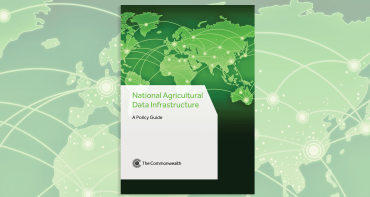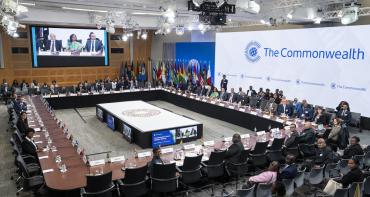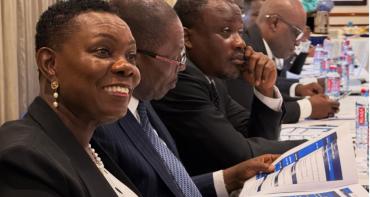An expert group of international lawyers specialising in oceans law met at Marlborough House to discuss key legal issues relating to seabed mining in international waters, a frontier industry attracting interest as a result of the increase in global demand for metals.

An expert group of international lawyers specialising in oceans law met at Marlborough House to discuss key legal issues relating to seabed mining in international waters, a frontier industry attracting interest as a result of the increase in global demand for metals.
The meeting of the ‘Legal Working Group on Liability for Environmental Harm from Seabed Mineral Activities in the Area Beyond National Jurisdiction’ was hosted by the Commonwealth Secretariat, in partnership with the International Seabed Authority (ISA), and the Centre for International Governance Innovation (CIGI). The Commonwealth was represented by legal experts from Malta, Singapore, South Africa, Trinidad and Tobago and the UK.
“We are delighted to be spearheading this important initiative with our partners ISA and CIGI, and the fabulous group of legal experts we have giving their time to this important work”, said Commonwealth Secretariat’s legal advisor and deep sea minerals lead Hannah Lily.
“It’s an excellent example of the Commonwealth Secretariat’s niche expertise, having real impact for our countries. Getting the ISA Mining Code right has potentially widespread implication. All 52 Commonwealth member states have an interest, whether they are directly involved with ISA contracts, or expecting a share in future royalties. We want to make sure proper legal protection is in place if and when seabed mining progresses. This working group is a great start.”
Global demand for metals and increasing challenges with on-land mines have driven investors offshore, and into the deepest reaches of the ocean. Although no commercial mining has yet to take place, companies are designing the machines with the capacity for large-scale extraction of the metal-rich seabed deposits found in nodule, crust and sulphide form, at depths up to six km under the sea.
Governments choosing to embrace this fledgling industry must put rules in place to manage it prudently, with a view to minimising environmental impacts, and maximising sustainable development benefits to the nation. The Commonwealth Secretariat is working with member countries to support this.



